When Bisa Hall met fellow Florida A&M University freshman Byron Donalds on campus in 1996, she believed the future Congressman and Donald Trump

floridatrident.org
July 9, 2024
Trident Exclusive: Trump VP hopeful Byron Donalds’ ex-wife shares her story, says what he’s doing is “super-dangerous”
By
Bob Norman
Congressman Byron Donalds, R-Naples, has been busy on the campaign trail for Trump. (Credit: X/@RepDonaldsPress)
Filed under:
Featured News
When Bisa Hall met fellow Florida A&M University freshman Byron Donalds on campus in 1996, she believed the future Congressman and Donald Trump vice-presidential short-lister was from another country.
“He told me he was from Jamaica and he had a Jamaican accent – and he was cute,” Hall said. “Then the next time I saw him, the Jamaican accent was gone and he said he was from New York.”
She said Donalds, who was then 18, explained why he’d initially deceived her.
“He felt like it would make him stand out,” Hall told the
Florida Trident. “And he was right. There were a ton of guys from New York around, but there weren’t any guys from Jamaica. He was right, it got him noticed.”
The chameleon-like patois role-playing certainly won her attention – Hall wound up marrying him. And that first encounter has special resonance as she watches her ex-husband’s political career go places that would have seemed unfathomable during those early days.
“An opportunistic person like he is will take whatever opportunity they’re given,” said Hall, a married public school teacher and mother of two. “He was always driven to get what he didn’t have. He was trying to fill a void and get what he didn’t have.”
Donalds has become one of Trump’s top surrogates. (Credit: White House)
The 45-year-old Donalds has stood out his entire political career, initially as one of very few Black Tea Party Republicans in a sea of almost exclusively white faces, and today as a top surrogate for the Trump campaign and the MAGA movement.
Now a stalwart of the Christian Right, he was neither religious nor political during the eight years of their on-again-off-again relationship, Hall said, though he did register to vote in Tallahassee – as a Democrat.
“We never talked once about how we were going to go and vote – it wasn’t a thing,” she said. “To see him now, out there saying, ‘I’m a conservative Black man,’ and I’m like, since when? He wasn’t talking about politics at all. To see him now, it’s like, ‘When did this happen?’”
Upon first being contacted by the
Trident last year, when she made the brunt of her statements, Hall reluctantly agreed to speak on the record in part, she said, because she strongly objects to Donalds’ service to Trump, a politician whom she’s disliked since well before the January 6 insurrection, civil fraud and sexual assault court rulings, multiple criminal indictments, and most recent guilty verdicts on 34 felony counts.
“I have big reactions to that man, I don’t think he’s a good human,” she said of Trump. “It’s not even political; I just think he’s a bad person.”
The congressman, who represents parts of Southwest Florida and is considered a frontrunner to be Florida’s next governor, has never been more enveloped in Trump’s orbit than he is right now. In addition to appearing on Trump’s VP list, Donalds visited the former president during his most recent trial in Manhattan, introduced him at a Black church in Detroit, handled post-debate spin room duties for the ex-president in Atlanta, and is conducting Black voter outreach for Trump with his “Congress, Cognac, and Cigars” tour of cities. During the first event in Philadelphia, he immediately stirred up controversy when he
implied Black families were better off under the repressive laws of segregation than they are today.
Donalds at the “Congress, Cognac, and Cigars” event in Philadelphia.
(Credit: Facebook/Byron Donalds)
“During Jim Crow, the Black family was together,” said Donalds, who is the lone Black member of the super-MAGA Freedom Caucus. “During Jim Crow, more Black people were — not just conservative, because Black people have always been conservative-minded — but more Black people voted conservatively.”
The statements permeated cable news networks and didn’t escape Hall, who simply called them “not good.”
“To see [Trump and Donalds] in collusion together, it was like, ‘If [Donalds] were a good human, would this very bad person be pushing him as a poster child?’” she asked rhetorically. “They’re both very opportunistic. You trot him out there and it makes some people feel better about Trump. I think what he’s doing is super dangerous and I think morally he and I have no crossover at all.”
Hall provides rare insight into Donalds’ college years, and her memories at times slightly differ from the Congressman’s account, particularly regarding his criminal charges for marijuana possession with intent to distribute, and bribery, as well as his dramatic conversion to evangelical Christianity.
Hall, however, made it clear to the
Trident that she didn’t believe Donalds’ past scrapes with the law should be considered disqualifying.
“I’m not a fan of his, but to be fair, we all enter those phases in our lives where we make some bad choices,” she said. “He made some bad choices. I could see why he would want these things expunged. I don’t think the Byron I knew had any idea he would become the guy he is right now.”
A detailed request for comment was emailed to Donalds’ Congressional office last Wednesday, with a follow-up Friday. The Congressman, who
ran into some controversy last yearregarding the actions and criminal history of one of this top aides, had yet to respond to the inquiry as of press time.
“First love”
After their first meeting on the Tallahassee campus, Hall and Donalds fell for each other, she a sheltered and solidly middle-class girl who grew up the only Black girl in a white neighborhood, and he from an impoverished upbringing in the Crown Heights neighborhood of Brooklyn, raised by a single mom.
“We had so much fun together,” Hall said. “At that time he was the greatest thing ever. He didn’t have anything to give me, his family wasn’t well off, but he was my first love.”
They quickly moved in with each other and became engaged.
“He was rough around the edges,” she said. “There’s a polish there now that wasn’t there before. He would talk about how he grew up in a bad neighborhood and talk about how his family was poor. He had charm, but it was street charm.”
Donalds as a boy in Brooklyn. (Credit: Byron Donalds Campaign)
What he lacked was money, she said.
“The shininess of your relationship kind of falls off after a while,” said Hall. “You realize that person stinks sometimes and isn’t always awesome. You don’t like to pay all the bills. He was always complaining about how he didn’t have any money.”
The cash shortfall led to a serious problem – Donalds started selling weed, said Hall.
“We had this neighbor who sold drugs and they got close,” she said. “Byron thought that was his path to fix his money situation. He was making bad choices. It never made sense to me why he did it. I had a level of concern. I had to worry, ‘What if he got arrested?’”
In late 1998, just days short of his 19th birthday, it happened – Donalds was arrested for marijuana possession with intent to distribute.
A pretrial diversion program kept him from serving any jail time in the case. Donalds has claimed on multiple occasions that the arrest involved only possession, contradicting both the listed charge and Hall’s remembrance.
At around the same time, the living arrangement and engagement ended, but the pair kept a close friendship and on and off again relationship. Then, in the summer of 1999, Hall faced a crisis when her scholarship ran out and she could no longer afford out-of-state tuition.
“We didn’t get married for a romantic reason,” she said. “I had a residency issue. The easiest way to fix that was to get married to a Florida resident, and [Donalds] was a Florida resident by that time. So we got married.”
She said after they wed on June 15, 1999, they didn’t move back in together. While their personal relationship remained intermittent, the marriage would last three and a half years.
“At the time I thought maybe we should be released from this marriage,” she said. “Maybe we should get divorced. And he would say, ‘No, I don’t want to lose my wife.’ I thought, ‘Maybe he’s playing the long game here.’”
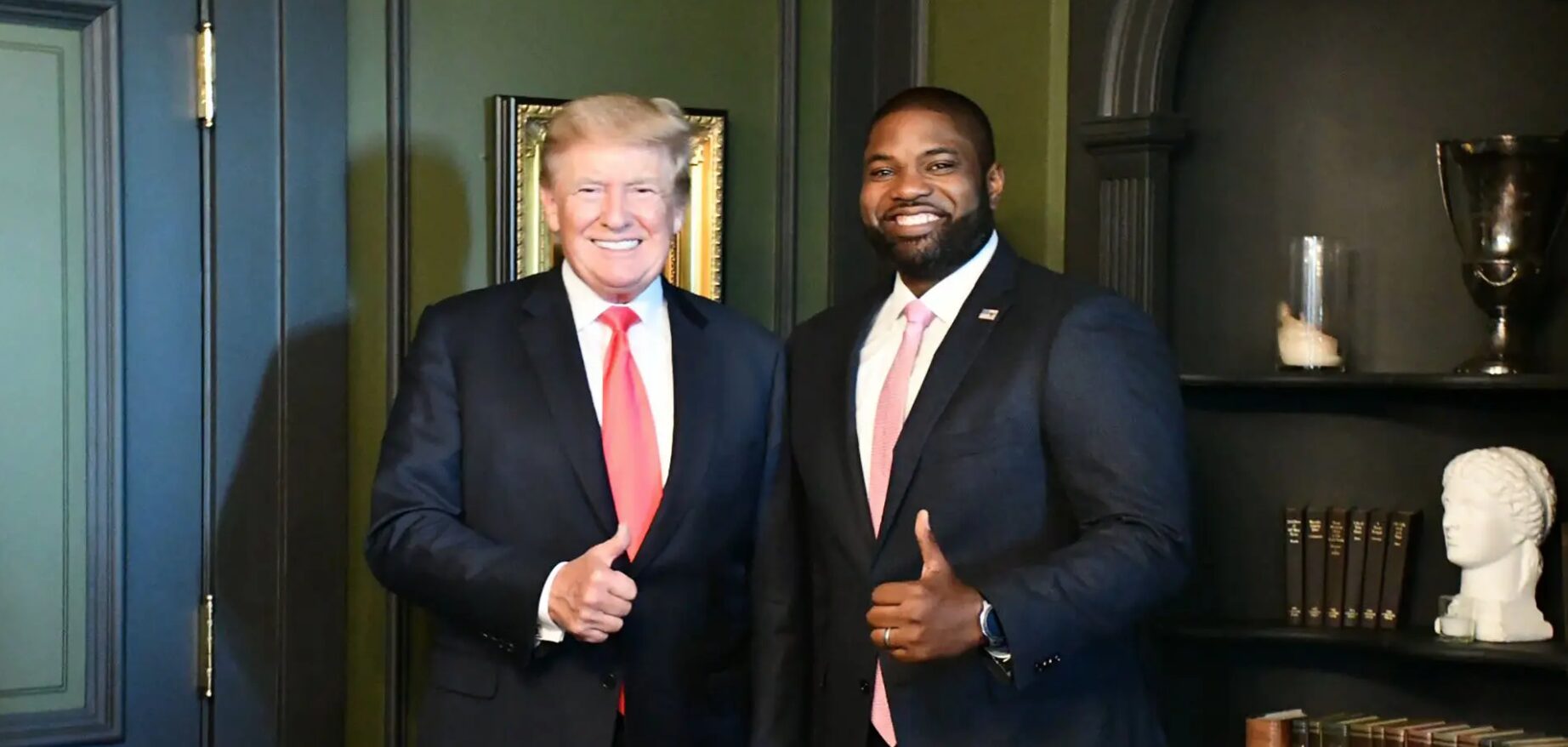
 floridatrident.org
floridatrident.org
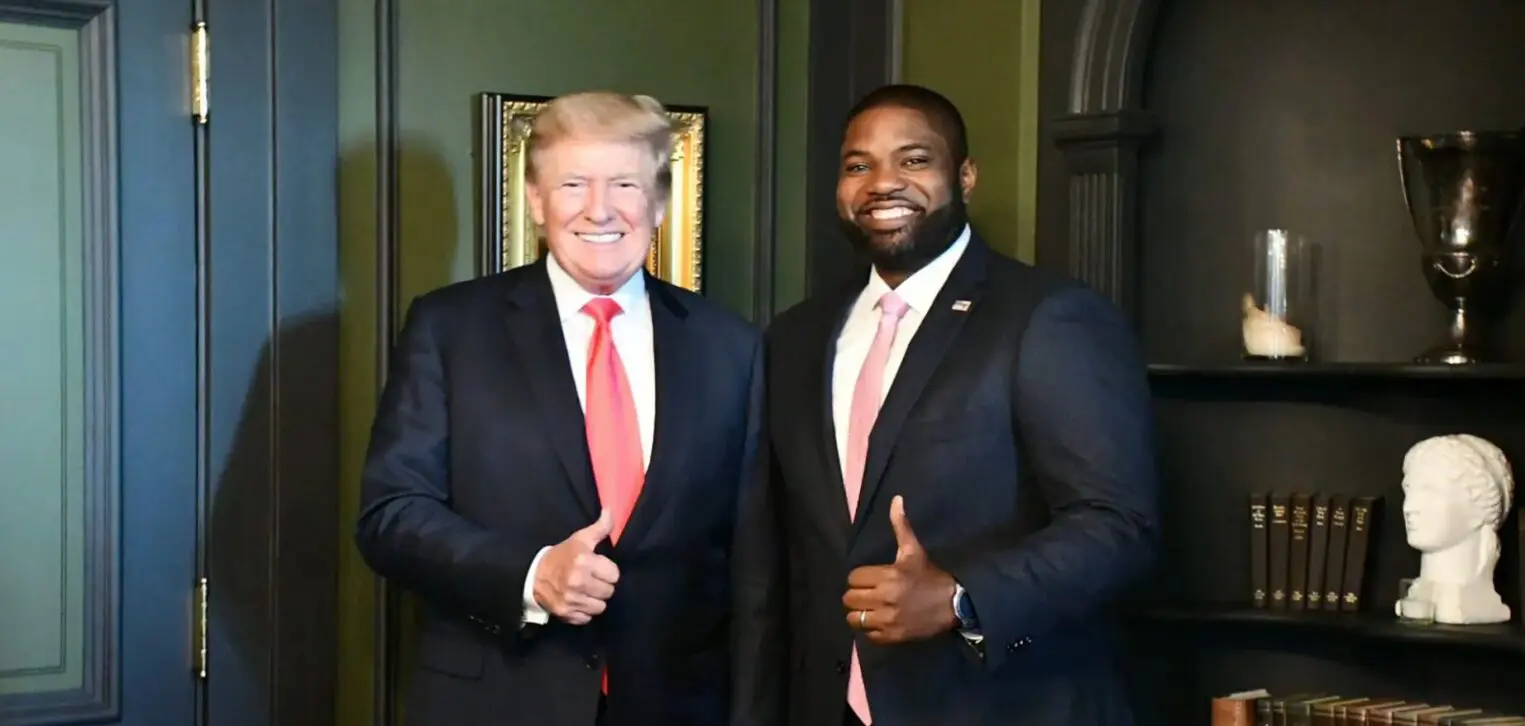
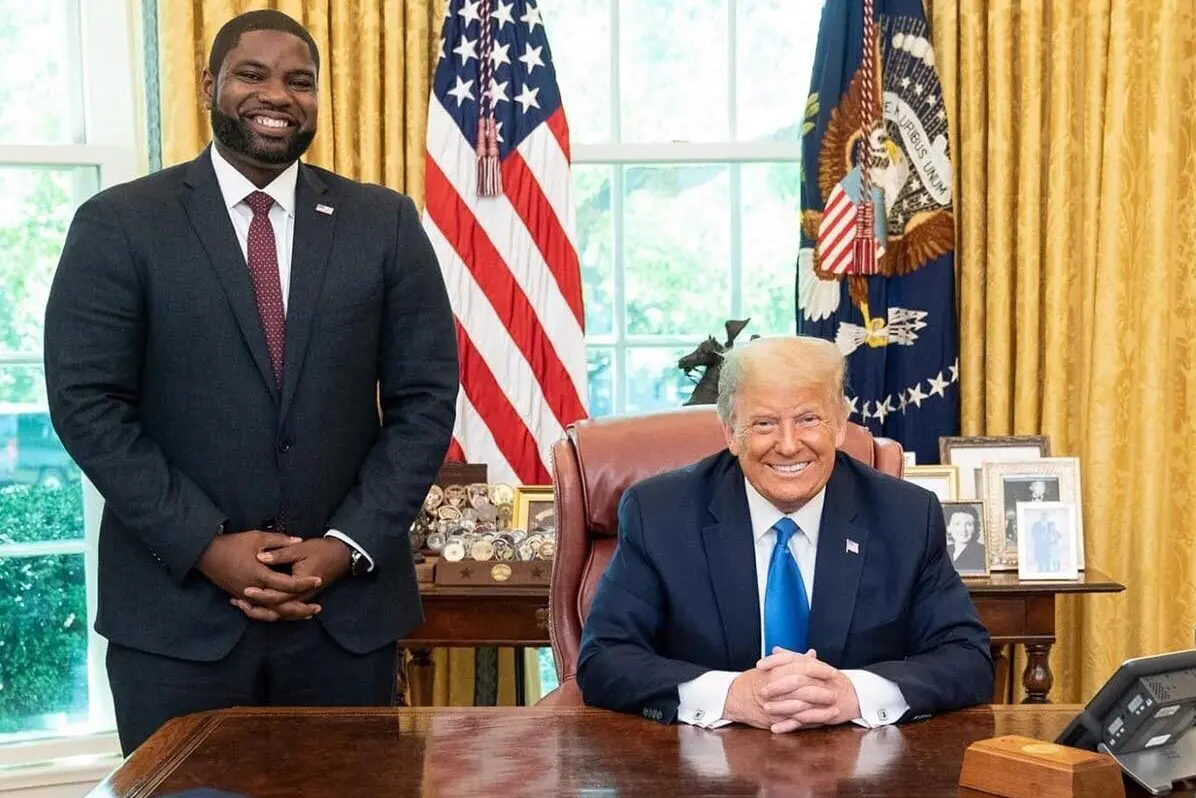
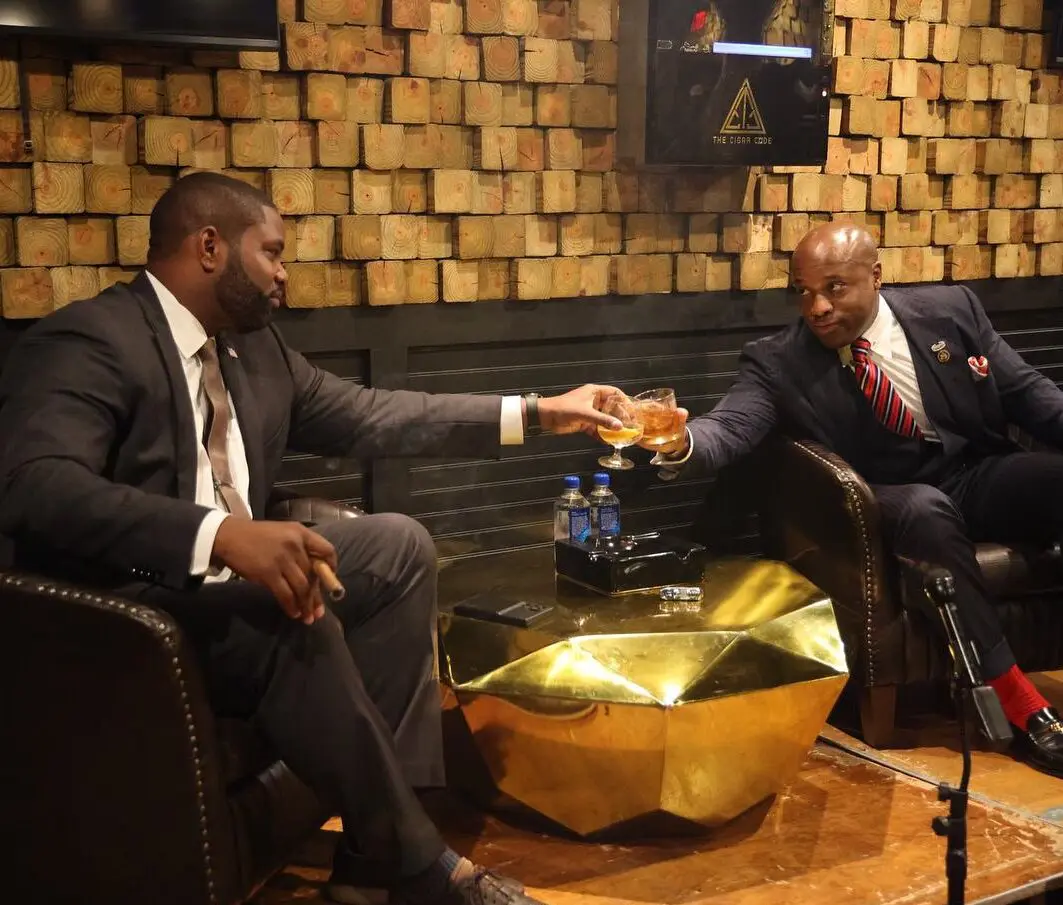
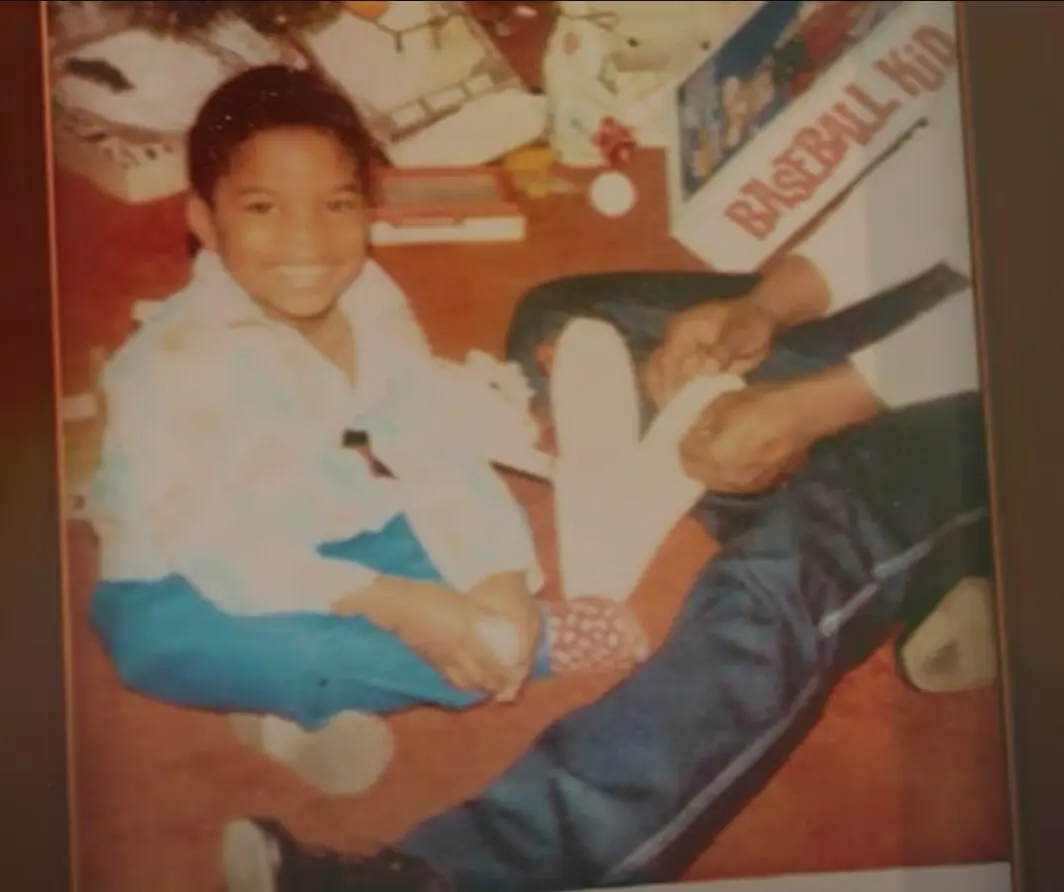
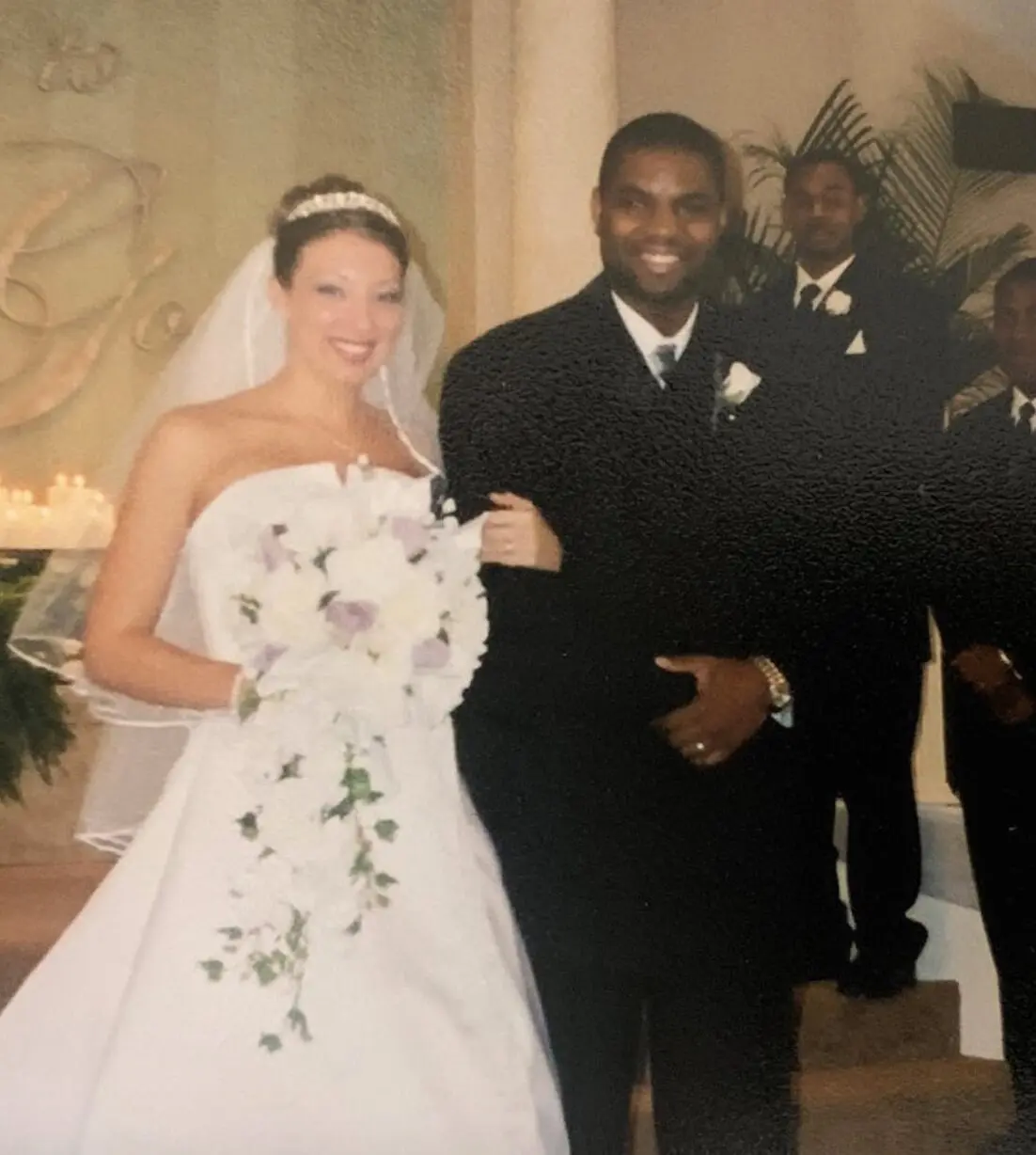
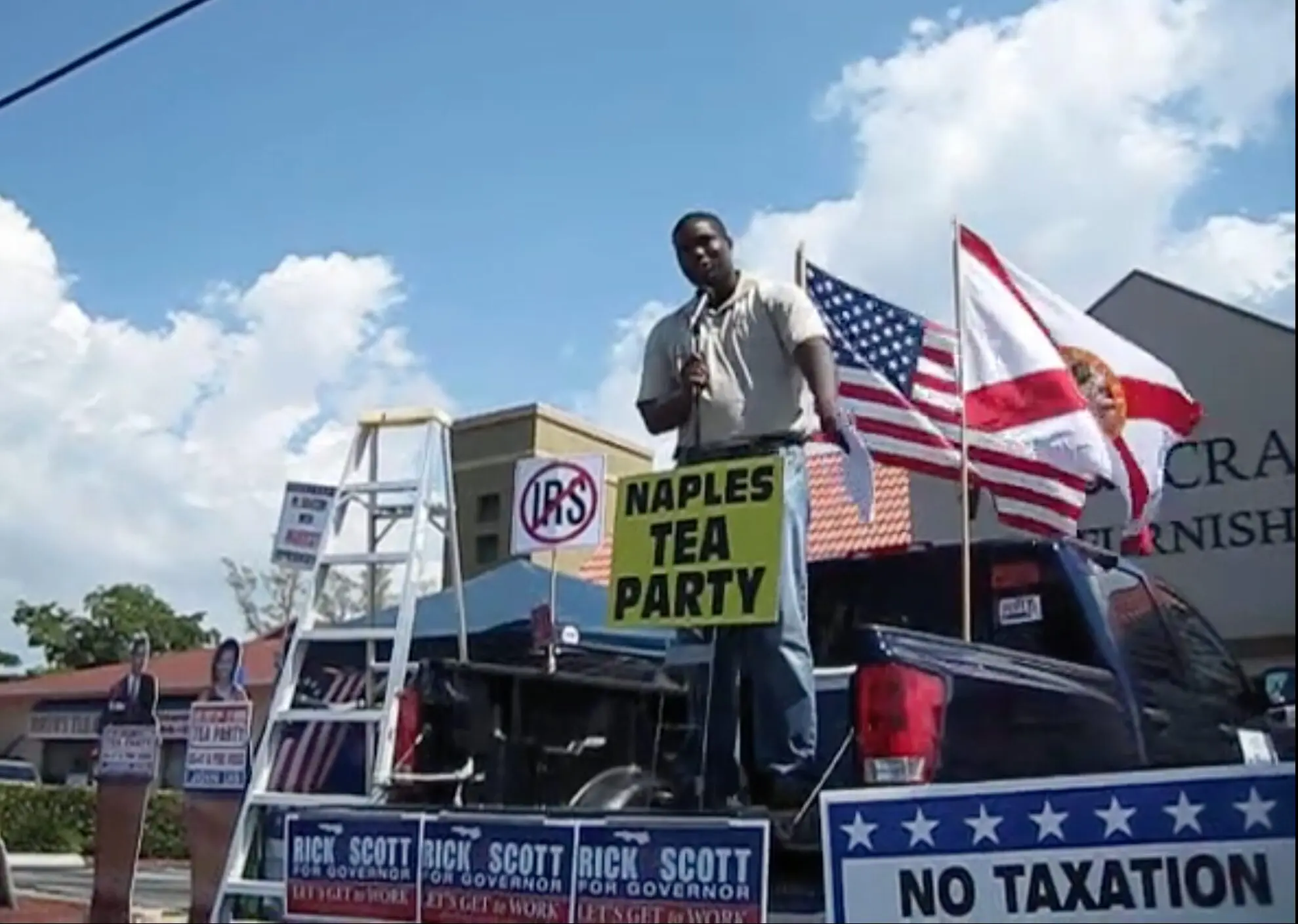
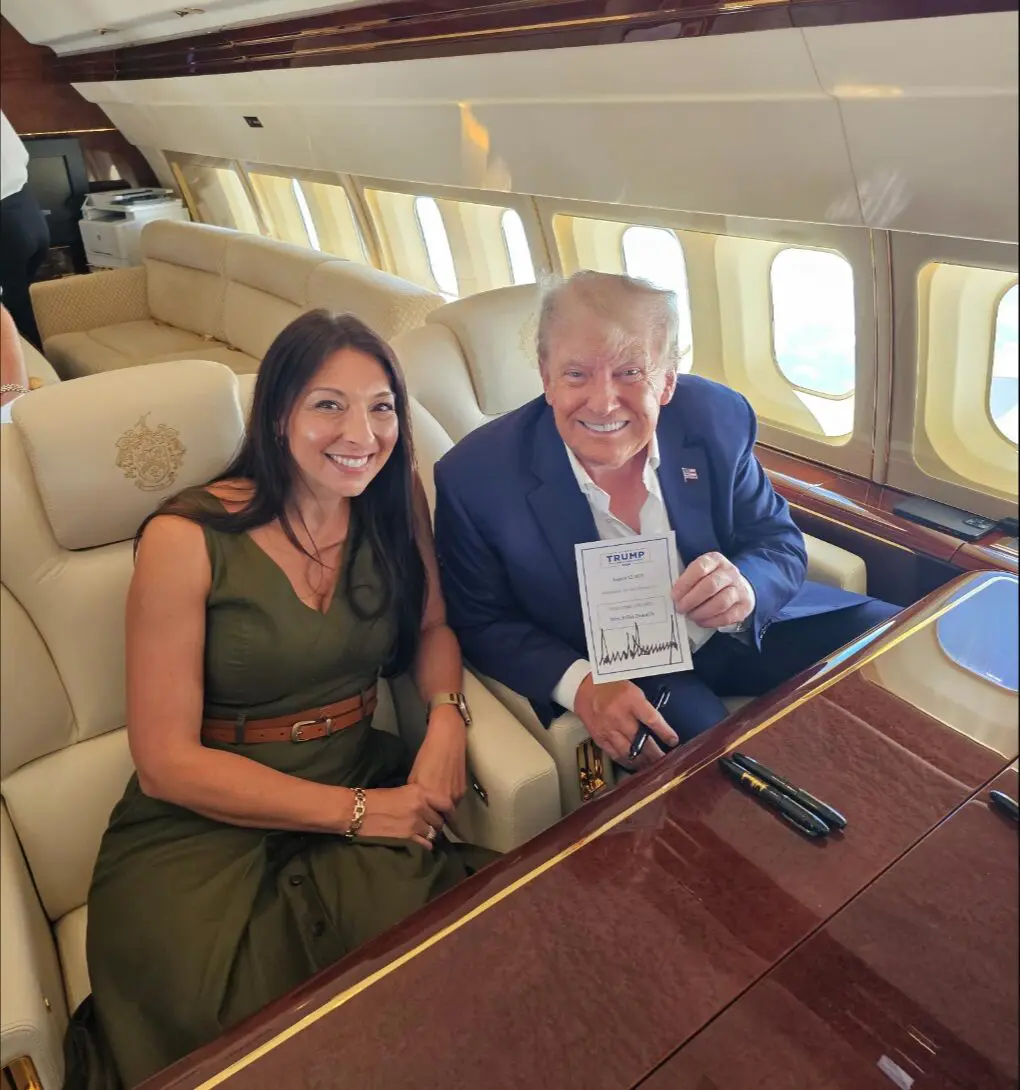


 she paid for the divorce and still never paid her back...
she paid for the divorce and still never paid her back...

